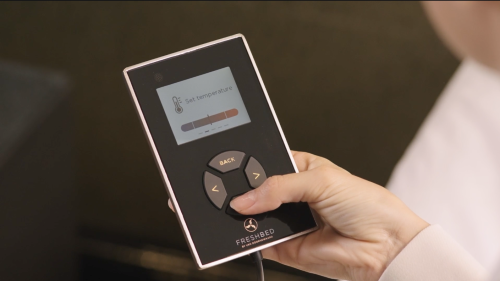
The science of sleep took one huge leap forward recently with The Nobel Assembly’s announcement that the Nobel Prize in Medicine for 2017 was awarded to three scientists who discovered the molecular mechanisms that control the circadian rhythm in cells.
Circadian rhythms dictate the ebb and flow of daily life on a roughly 24-hour clock. This biological clock keeps the body naturally regulated to changes throughout the day, controlling amongst other things: sleep, blood pressure, heart rate, alertness, body temperature and reaction time. Interruptions to the body’s natural circadian rhythms, such as during jetlag or insomnia, can result in fatigue, obesity, diabetes, heart issues, and can lead to a host of other serious medical issues.

While it was clear that circadian rhythms were important to sleep health, what wasn’t clear was exactly how circadian rhythms worked. But years of research led scientists Jeffrey C. Hall, Michael Rosbash and Michael W. Young to the discovery of a section of DNA called the period gene and a protein called PER, both of which are directly involved in the body’s circadian rhythm. Thanks to this trio of scientists, we now know that the levels of PER in a cell are what drive the body’s circadian rhythm, which in turn regulates sleep, fertility, metabolism, mood, blood pressure, heart rate, etc.
The scientists’ studies were carried out on fruit flies, but the implications of the findings have far greater reach. By knowing exactly what controls the body’s inner timekeeper and exactly how it works, we may be able to find ways to improve or reduce the misalignment between a person’s lifestyle and their circadian rhythm.

In a world where sleep is becoming more and more elusive, where the workforce is working longer hours and sleeping less, where technology and the modern working lifestyle serve as constant interruptions to sleep quality…this is not a discovery to take lightly. It is one to be praised.
In a world where sleep is becoming more elusive, this is not a discovery to take lightly.
For our part, we love that the Nobel Assembly has shed light on the subject of sleep by awarding the Nobel Prize in Medicine this year to these three scientists, and we applaud them. The 21st century is taking its toll on the world’s sleep and health, but now we can take one giant step closer to a better understanding of how sleep can work for us, optimise our health, and improve our lives.
There is still so much to discover about sleep, but by improving sleep biology, the sleeping environment, sleep quality, and the crossroads where these meet, we can begin to heal the world through sleep.
Sources:
- https://www.nytimes.com/2017/10/02/health/nobel-prize-medicine.html
- https://www.popsci.com/2017-nobel-prize-physiology-medicine
- https://www.nobelprize.org/nobel_prizes/medicine/laureates/2017/press.html
- https://en.wikipedia.org/wiki/Circadian_rhythm#Effect_of_circadian_disruption
- http://www.bbc.com/news/health-41468229
- http://www.independent.co.uk/news/science/nobel-prize-medicine-physiology-winners-sleep-tips-circadian-rhythms-energy-a7979786.html
Keywords: Nobel Prize Medicine 2017, Jeffrey C. Hall, Michael Rosbash, Michael W. Young, Nobel Prize 2017, circadian rhythms, period gene, protein PER, body clock, sleep habits, sleep health, sleep quality






















